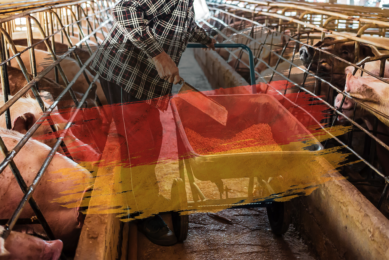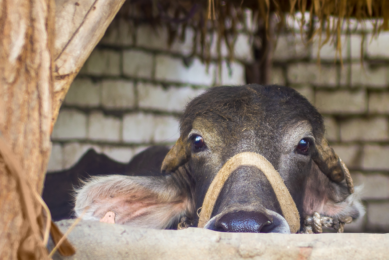First feed product delivery through North-South transport corridor realised

The first 1,500 tonnes of sunflower meal were delivered through the North-South international transport corridor, the Russian railway monopoly RZD have revealed.
A test batch of sunflower meal from one of Russia’s leading agricultural holdings has been delivered to Azerbaijan, RZD stated.
“RZD is consistently working to modernise transport solutions using the North-South corridor amid growing interest from shippers,” Vera Vtorigina, an RZD branch director, noted.
The North-South corridor is a 7,200 km route for moving freight between India, Iran, Azerbaijan, Russia, Central Asia and Europe, running from St. Petersburg to Mumbai.
In the coming years, the Russian railway monopoly targets expanding the use of the North-South corridor to boost exports of feed products to Iran, Turkey, and Pakistan.
“The international transport corridor provides an effective connection between countries in the Eurasian space, which contributes to the development of trade and economic ties,” Vtorigina said.
Lack of cargo
Kicked off in 2000, the North-South corridor was designed to become the key transport route spanning Europe with India. The delivery time was expected to range between 15 to 24 days, against 30 to 45 days via the Suez Channel.
In 2021, Russian authorities projected that the cargo turnover on the route was expected to jump to 30 million tonnes per year by 2025, largely comprised of agricultural products.
However, the corridor lacks cargo volumes, Alexander Sharov, director of Rusiranexpo, a logistics firm, revealed, speaking during an industry conference in late 2024.
“There is little cargo. If we take not abstract figures from conferences and forums but the real volumes of cargo that are going – they are little. How little? It is unknown. Statistics are closed due to sanctions, both Russian and Iranian,” Sharov said.
Divesting feedstuff exports
RZD emphasised that it plans to use the transport corridor to ramp up deliveries to friendly countries.
Russia could take advantage of the new route to redirect some feed products previously exported to Europe to new markets.
From July 1, 2025, the European Union imposed a protective duty on a broad range of agricultural commodities of Russian and Belarussian origin. In particular, the duty on soft wheat was set at €95 per ton, durum wheat — €148, duties on rye and barley are € 93, and oilseeds, oils and pulp — 50% of the customs value.
The move left the Russian market with large quantities of products such as rapeseed, sunflower meal and sugar beet pulp, which previously was largely exported to Europe.
Russian Institute of Agricultural Market Studies IKAR forecasted that due to the ban, Russian agricultural firms need to find creative solutions to divest exports.











